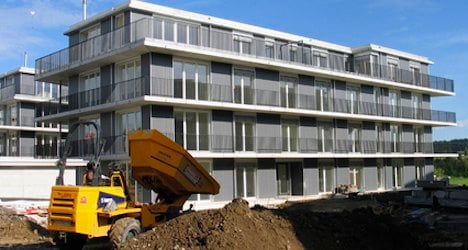Attractive subsidies to cover the cost of luxury housing and private schooling for children, once a standard feature for foreign professionals, are becoming less common, the Zürichsee Zeitung website says.
In a report picked up by 20 Minuten online on Thursday, the newspaper cites relocation companies who say that the broad mass of expats now get the same treatment as Swiss nationals.
Only senior executives enjoy the “privileged expat status” as companies cut budgets for what they are willing to pay for workers hired from abroad, the report says.
While in 2012, an expat family might have benefited from four and a half-room apartment in the 4,500- to 5,500-franc-a-month range, but they now have to settle for digs in the 3,500- to 4,000-franc range, Zürichsee Zeitung says.
Employees working temporarily in Switzerland on projects are also getting less of an accommodation subsidy, it says.
Individuals who could once rent a furnished apartment for 4,000 francs a month, “today perhaps have 2,500 to 3,000 francs”, Sandra Luchetta, an expat consultant at Zurich ZR Relocation, told the newspaper.
Expat singles are seeking lodgings in the “normal housing market”, putting pressure on demand for apartments in central locations, according to Caroline Raoult, of real estate company Kuoni Müller & Partner.
The housing market in the Zurich area has changed significantly, Raoult told Zürichsee Zeitung.
Apartments in the upper price segment are standing empty for significantly longer periods than before, although landlords are not prepared to accept the market has changed, she said.
“The owners are only willing to lower rents if the flats are empty between three and four months.”



 Please whitelist us to continue reading.
Please whitelist us to continue reading.
Member comments